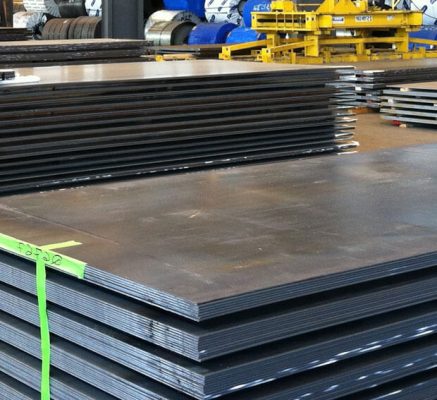What is Difference S235JR to S235J0?
The chemical compositions of s235jr and s235j0 are nearly identical. There are significant distinctions between the two, however. Consider several of them.
S235JR Chemical composition
S235JR is one of the most essential structural steel grades. It contains 0.17 to 0.20 wt% carbon in its chemical makeup. It is manufactured according to EN 10025-2 requirements. In addition to the typical qualities of mild steel, it also has increased quantities of phosphorus and sulfur.
This material is appropriate for uses in which the impact energy of the material is less than 27 Joules. In addition, it is very pliable and has excellent machinability. As a result, it is frequently employed in vehicle structures.
Freight cars and other civil engineering applications are the most prevalent uses for this material. Various thicknesses are also available. However, prices may differ from manufacturer to manufacturer. Be sure to inquire about the particular metal used if you intend to buy.
S235JR Sustained
The yield strength of a material is a measurement of its capacity to withstand a specified load. The value is stated in megapascals (MPa) and can range between 350 and 500 MPa for thin plates. This is a significant quality of structural steels. It indicates that the material can endure stresses that would normally cause it to fail.
Numerous industries employ structural steels frequently. They are appropriate for several applications, including forging, building, mining, manufacturing, and transportation. Furthermore, their prices are competitive. Their performance, however, is contingent upon the dimensional capabilities of the materials.
In the industry, S235JR steel is a popular option. In addition to possessing a high tensile strength, this material is also highly flexible. In addition, the material’s mechanical qualities make it a viable candidate for welding, particularly for non-critical structures. In addition, it emits less carbon and is easily accessible.
S235JR Tensile strength
Common structural steels include S235JR and S235J2. Although they have distinct chemical compositions, they share numerous features. These structural steels are utilized in an extensive array of applications.
Depending on the material’s thickness, S235JR’s tensile strength ranges from 360 to 510 MPa. This grade is often employed within the building industry. It is also a prominent car structure material.
S235J0 tensile strength and weldability
S235J0 possesses superior tensile strength and weldability. It is available in a range of thicknesses and is suited for low-stress components in mechanical engineering. It has a lower carbon percentage and a greater phosphorous content compared to other carbon steels.
S235J0 has a maximum impact energy of 27 Joules at 0 degrees Celsius, as measured by its physical attributes. Normal grades are offered in a wide variety of thicknesses, from 1.50 mm to 400.0 mm.

S235JR and S235J0 Property with length
Both S235JR and S235J0 are steels with outstanding mechanical characteristics. They possess a high yield strength, tensile strength, and elongation. These steels are utilized for construction, automotive construction, and shipbuilding.
S235JR and S235J0 steel quality is determined using a variety of testing procedures. The yield strength of a material is assessed by Charpy impact testing. This represents the maximum load that the object can withstand before breaking. The stress at which the metal’s tensile strength falls below its yield strength will cause elastic deformation.
In addition to tensile and yield strengths, the Charpy impact value of a material indicates the lowest temperature at which it can withstand a 27-Joule impact. The value is 20 degrees Celsius at room temperature.
S235JR and S235J0 are readily weldable and have a low carbon content. Different thicknesses are available. From 360 to 510 MPa, their tensile strength ranges.
Utilization S235JR and S235J0
Steel for construction purposes is an essential material. The majority of its applications are in the engineering and transportation industries. Different types of steel have distinct properties and applications. S235 and S355 are the predominant varieties.
Both S235JR and S235J2 are carbon steels. Both adhere to the technical specification EN 10025-2. Vehicles, cranes, and transmission towers are prominent applications for these low-carbon structural steels.
In terms of mechanical qualities, the S235JR non-alloy steel is ductile and has good cold bending properties. The minimum impact energy is 27 Joules at room temperature. It is therefore perfect for welding. In addition, its machinability is close to that of mild steel.
In addition, it is a common material for welded structures and components. Generally, this grade is delivered in its natural state. Nevertheless, manufacturers provide a range of pricing possibilities.
